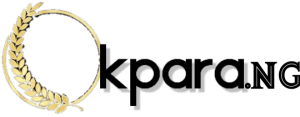Catfish Farming Business Plan in Nigeria (2025/2026 with 5-Year Financial Projections)
Business Name: Okpara Business Plan Enterprises
Address: Number 1 Okpara Street
Prepared by: Okpara Ijezie Kingsley
Contact: 📞 08060777979 | kingofdata4u@gmail.com
Date: 2025/2026
Table of Contents
- Executive Summary
- Business Overview
- Mission & Vision Statements
- Business Objectives
- Business Description
- Industry Overview (Nigeria Context)
- Nature of the Business
- Value Proposition
- Products & Services Offered
- Market Analysis
- Nigerian Market Trends
- Target Market & Customer Segments
- Competitor Analysis
- SWOT Analysis
- Marketing & Sales Strategy
- Marketing Channels
- Pricing Strategy
- Distribution Strategy
- Promotion Methods
- Operations Plan
- Location & Facilities
- Production & Operational Process
- Technology Requirements
- Staffing & HR Plan
- Management & Organization
- Business Structure
- Roles & Responsibilities
- Organizational Chart
- Financial Plan (2025/2026 – 2029/2030)
- Startup Capital Requirements
- Operating Expenses
- Sales Forecast (5 Years)
- Profit & Loss Projection (5 Years)
- Break-even Analysis
- Funding Requirements
- Appendices
- Financial Tables
- Graphs & Charts
- Supporting Documents
Executive Summary
Business Overview
Fish is one of the most consumed proteins in Nigeria, and catfish remains the most popular due to its affordability, taste, and year-round availability. Nigeria consumes over 3.7 million metric tons of fish annually, but local production falls short, creating a heavy reliance on imports.
Okpara Business Plan Enterprises will establish a profitable, medium-scale catfish farming operation in Nigeria with a startup capacity of 1,000 catfish fingerlings per cycle. With a ₦5 million startup capital, the farm will leverage efficient pond management, sustainable feeding practices, and strategic marketing to ensure high survival rates and profitability.
Mission Statement
To produce and supply high-quality, affordable, and nutritious catfish to Nigerian markets, households, and restaurants while creating employment opportunities and contributing to national food security.
Vision Statement
To become a leading catfish supplier in Nigeria by 2030 and expand into the West African smoked catfish export market.
Business Objectives
- Successfully raise and sell 1,000 fish per cycle in the first year, with an 85% survival rate.
- Achieve revenue of ₦7.1 million in Year 1 and expand to ₦17.2 million annually by Year 5.
- Create direct employment for 6 staff and indirectly support distributors and retailers.
- Introduce value-added smoked catfish products packaged for supermarkets and export by Year 3.
Business Description
Industry Overview (Nigeria 2025/2026)
- Nigeria’s fish demand: 3.7 million metric tons/year.
- Local production: less than 50% of demand.
- Catfish: most farmed and consumed species due to fast growth and market preference.
- Aquaculture contributes significantly to youth employment and government-backed agricultural financing programs (CBN Anchor Borrowers, NIRSAL, BOA).
Nature of the Business
Okpara Business Plan Enterprises will focus on:
- Rearing fingerlings to table-size catfish (1.2kg – 2.0kg).
- Processing smoked/dried catfish for domestic and export markets.
- Selling fingerlings and juveniles to other farmers.
Value Proposition
- Reliable supply of fresh catfish directly to wholesalers and restaurants.
- Smoked catfish with hygienic, export-standard packaging.
- Affordable prices compared to imported frozen fish.
Products & Services
- Fresh Catfish: Table-size fish harvested at 5–6 months.
- Smoked Catfish: Processed and packaged for supermarkets.
- Fingerlings/Juveniles: For farmers starting their own fish farms.
- Future Expansion: Local feed production to reduce costs.
Market Analysis
Nigerian Market Trends
- Table-size catfish currently sells for ₦2,800 – ₦3,200/kg (2025).
- Smoked catfish sells for ₦5,500 – ₦6,000 per 500g pack.
- Restaurants and pepper soup joints are repeat buyers.
- Growing preference for locally farmed catfish over imported frozen mackerel.
Target Market
- Restaurants & Hotels: High repeat orders.
- Market Women: Major distributors in local markets.
- Households: Direct farm-to-table customers.
- Export Buyers: Smoked catfish for diaspora demand.
Competitor Analysis
- Small-scale farmers with irregular supply.
- Imported frozen fish with fluctuating forex costs.
- Competitive Advantage: Year-round steady supply, smoked fish processing, and affordable prices.
SWOT Analysis
Strengths:
- Affordable startup size (₦5m manageable).
- High demand across Nigeria.
- Multiple income streams (fresh + smoked + fingerlings).
Weaknesses:
- Feed cost dependency.
- Requires technical knowledge.
Opportunities:
- Export market for smoked fish.
- Access to agricultural grants.
- Increasing protein demand in Nigeria.
Threats:
- Disease outbreaks.
- Rising feed prices.
- Market price fluctuations.
Marketing & Sales Strategy
Marketing Channels
- Offline: Direct sales to markets, pepper soup joints, hotels.
- Online: Social media marketing (Facebook, Instagram, WhatsApp Business, TikTok).
Pricing Strategy
- Farm-gate price: ₦2,800/kg.
- Smoked catfish: ₦5,800 per 500g pack.
- Bulk discounts for wholesalers.
Distribution Strategy
- Direct pick-up at farm.
- Partnerships with delivery services.
- Distribution deals with supermarkets.
Promotion Methods
- Social media campaigns.
- “Harvest day” promotions.
- Free tasting events at local bars/restaurants.
Operations Plan
Location & Facilities
- Semi-urban farm site with access to water.
- 2 concrete ponds (capacity: 1,000 fish).
- Borehole with water treatment.
- Smoking kiln for processing.
Production Process
- Purchase fingerlings (₦100 each).
- Feed consistently for 5–6 months.
- Harvest and sell fresh fish.
- Smoke-dry some for added value.
Technology Requirements
- Solar-powered borehole.
- Smoking kiln.
- Water testing kits.
Staffing & HR Plan
- Farm Manager (₦150,000/month).
- 2 Farm Hands (₦80,000 each).
- Sales Officer (₦100,000).
- Security (₦60,000).
Management & Organization
Business Structure
- Sole Proprietorship (2025/2026).
- Transition to Limited Liability Company by 2027.
Roles & Responsibilities
- CEO (Okpara Ijezie Kingsley): Oversees finance, expansion, and strategy.
- Farm Manager: Handles daily farm operations.
- Sales Officer: Manages sales and marketing.
- Farm Workers: Feeding, pond maintenance, harvesting.
Financial Plan (2025/2026 – 2029/2030)
Startup Capital (₦5,000,000)
| Item | Quantity | Unit Price (₦) | Total (₦) |
|---|---|---|---|
| Pond construction | 2 | 1,200,000 | 2,400,000 |
| Fingerlings | 1,000 | 100 | 100,000 |
| Feed (60 bags) | 60 | 35,000 | 2,100,000 |
| Borehole & pump | – | – | 200,000 |
| Smoking kiln | 1 | 500,000 | 500,000 |
| Miscellaneous | – | – | 200,000 |
Total = ₦5,000,000
Operating Assumptions
- Survival rate: 85% (850 fish per cycle).
- Average weight: 1.5kg/fish.
- Selling price: ₦2,800/kg.
- Two cycles per year.
5-Year Financial Projection
| Year | Fish Sold (Surviving) | Avg. Weight (kg) | Price/kg (₦) | Revenue (₦) | Expenses (₦) | Net Profit (₦) |
|---|---|---|---|---|---|---|
| 2025 | 850 | 1.5 | 2,800 | 7,140,000 | 3,200,000 | 3,940,000 |
| 2026 | 900 | 1.6 | 3,000 | 8,640,000 | 3,500,000 | 5,140,000 |
| 2027 | 950 | 1.7 | 3,200 | 10,340,000 | 4,000,000 | 6,340,000 |
| 2028 | 1,000 | 1.8 | 3,400 | 12,240,000 | 4,500,000 | 7,740,000 |
| 2029 | 1,200 | 2.0 | 3,600 | 17,280,000 | 5,200,000 | 12,080,000 |
Break-even Analysis
- Cost per fish: ₦3,200.
- Selling price per fish (avg. 1.5kg at ₦2,800/kg): ₦4,200.
- Profit margin per fish: ₦1,000 – ₦1,200.
- Break-even at 770 fish sold annually.
Funding Requirements
- Total required: ₦5,000,000 (startup).
- Expansion to ₦10m in Year 3 for smoked catfish packaging.
- Financing options: CBN agricultural loan, BOA loan, NIRSAL microfinance.
Appendices
- 5-Year Sales Forecast Chart.
- Startup Cost Pie Chart.
- SWOT Diagram.
✅ Final CTA
📌 If you need a complete business plan with a downloadable Excel financial model customized to your specifications, contact:
Okpara Ijezie Kingsley
📞 08060777979
📧 kingofdata4u@gmail.com




